
Gender-Affirming Care Is Trauma-Informed Care
Discusses how gender-affirming care is trauma-informed care and offers tips for showing support and acceptance for transgender, gender diverse, and intersex (TGI) youth.
The following resources on LGBTQ Youth were developed by the NCTSN.

Discusses how gender-affirming care is trauma-informed care and offers tips for showing support and acceptance for transgender, gender diverse, and intersex (TGI) youth.
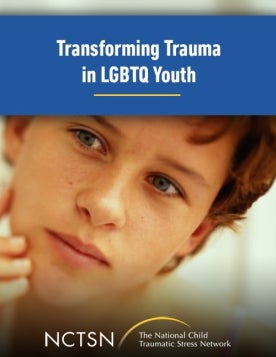
Introduces a new screening tool for mental health treatment providers to explore youth identities and identify potentially traumatic experiences for LGBTQ+ youth.
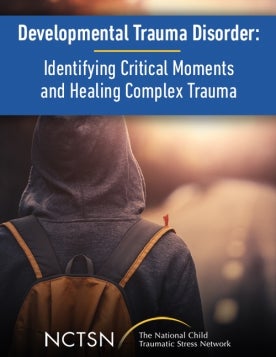
Outlines how during the of the pandemic, young people have faced increased isolation and disconnection. This webinar features Aiden, a transgender youth dealing with discrimination...
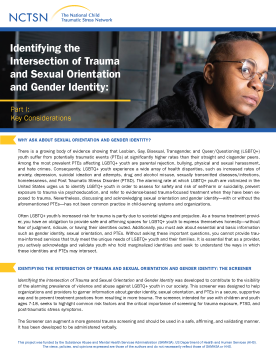
Addresses why providers should ask about sexual orientation and gender identity, identifies the intersection of trauma, sexual orientation and gender identity, and provides goals for the screener.
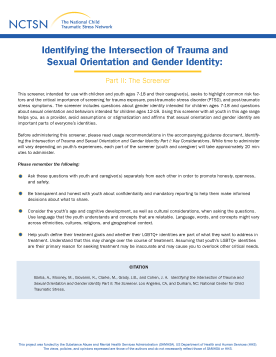
Is intended for use with children and youth ages 7-18 and their caregiver(s). The screener seeks to highlight common risk factors and the critical importance of screening for trauma exposure, post-traumatic stress disorder (PTSD), and post-traumatic stress symptoms.
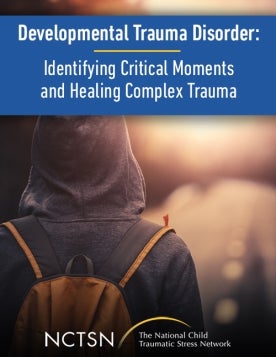
Features James, a 16-year-old African American youth who has been living with his maternal uncle, Patrick, since he and his two younger sisters were removed from their biological parents three years ago when James reported to a teacher that his father physically abused him.
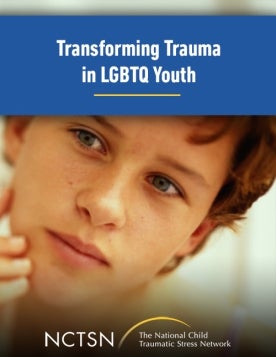
Outline techniques for engaging families in affirming treatment and care of their LGBTQ youth, including a review of techniques used within the Family Acceptance Project (FAP) with founder Caitlin Ryan.
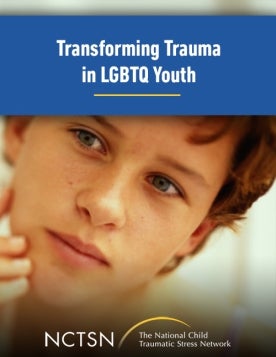
Discusses how professionals can recognize qualities of a safe, affirming environment where staff can explore personal views and values, and articulate professional responsibilities.
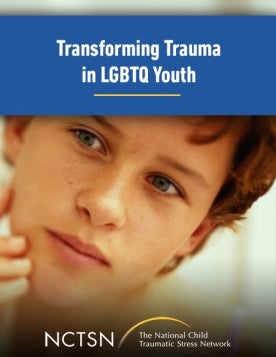
Aims to build provider awareness on the experiences of LGBTQ youth in psychiatric, child welfare, juvenile justice, and other residential settings. Speakers will examine the effects of trauma and the systemic barriers faced by LGBTQ youth in out of home care.
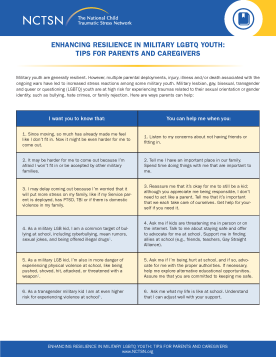
Offers information to parents and caregiver on how to help military children and adolescents who identify as LGBTQ deal with the many challenges they face. This tip sheet describes common thoughts or situations LGBTQ youth may have and how parents and caregivers may help.
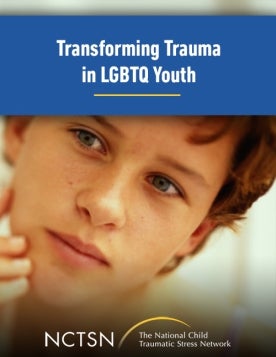
Provides participants with a comprehensive understanding of the needs and challenges transgender and gender-expansive youth face. This webinar covers basic definitions surrounding gender, gender identity, and gender expression, while creating a learning environment for participants...
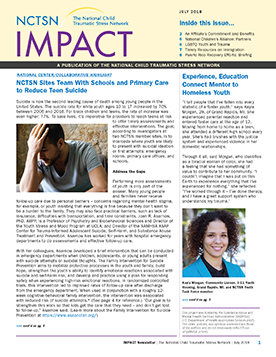
Includes articles that range from a report on teen suicide screening and intervention to new resources for bringing an LGBTQ lens to trauma-informed care.